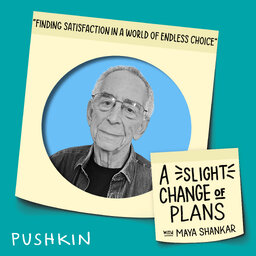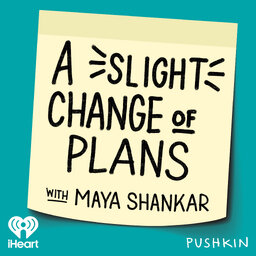Real Talk: The Transition to Motherhood
Motherhood can be a time of profound internal upheaval, says clinical psychologist Molly Millwood. Molly offers an honest look at the transition into motherhood, drawing from scientific research, stories from her private practice, and her own experiences as a mother. She and Maya talk about how to navigate the grief, guilt, ambivalence, and other disorienting feelings that can often come up for new moms.
For more on Molly, check out her book “To Have and To Hold: Motherhood, Marriage, and the Modern Dilemma.”
If you liked this episode, we recommend listening to “The Devastation of Things Going Exactly to Plan.”
Sign up for Maya's new newsletter here https://bit.ly/41lPqaZ and follow her on instagram @DrMayaShankar.
In 1 playlist(s)
A Slight Change of Plans
What happens when life doesn’t go according to plan? In this award-winning podcast, cognitive scient…Social links
Follow podcast
Recent clips

Finding Satisfaction in a World of Endless Choice
29:07

Brené Brown and Maya Talk “Heated Rivalry,” Mental Spirals, and Moral Beauty
41:59

The Invisible Weight of Olympic Gold
34:12
 A Slight Change of Plans
A Slight Change of Plans